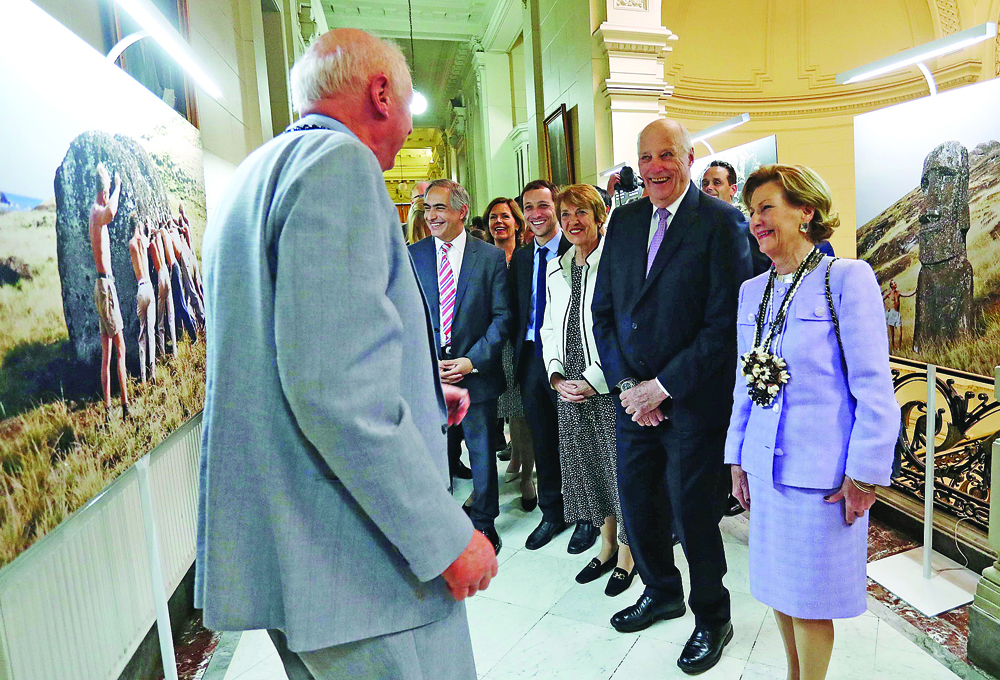Norway to return historical items to Easter Island

Artifacts taken on Kon-Tiki expedition to be repatriated

Human remains and other artifacts taken from Easter Island, also known as Rapa Nui, by Norwegian explorer Thor Heyderdahl on his legendary Kon Tiki expeditions are to be returned to their homeland after an agreement was signed between Norway and Chile.
Heyerdahl's son Thor Jr and Chile's Minister of Culture, Arts and Heritage Consuelo Valdessigned an agreement during a state visit to Chile by Norway's King Harald V and Queen Sonja.
Heyerdahl, who died in 2002 aged 87, crossed the Pacific Ocean in 1947 and then again in 1955 on a balsa wood raft called Kon Tiki, to prove his theory that some of the earliest Pacific Island settlerscame from South America, rather than Southeast Asia, as widely thought.
"The repatriation is a fulfillment of my father's promise to the Rapa Nui authorities, that the objects would be returned after they had been analyzed and published," said Heyerdahl Jr, who took part in the 1955 journey.
"As a Ministry, we have the mission to respond to the fair demand of the Rapa Nui people to recover their cultural heritage,"added Valdes.
"This is a commitment that we have undertaken with responsibility and in a dialogue with the community of the Island.Today, a further step has been taken through this historic agreement with Norway, which will allow the return of pieces of a very deep symbolic and cultural value for the Island."
No date has yet been set, and Kon-TikiMuseum Director Martin Biehlsaid a suitable facility should be built first. "Our common interest is that the objects are returned and, above all, delivered to a well-equipped museum," he said, adding that the return"will take time."
Norway is not the only country to have items from Rapa Nui whose return is now being sought.Last year, a delegation travelled to London for talks about a statueknown asHoaHakananai'a, or "lost or stolen friend", on display at the British Museum after being taken in 1868.
The 2.4-meter high statue is a"moai", carved as a representation of a respected ancestor, and seen as the person's living incarnation.
"It is the right time to maybe send us back (the statue) for a while, so our sons can see it as I can see it," said Tarita Alarcon Rapu, governor of Rapa Nui, with Chile's Minister for National Property Felipe Ward adding that the talks were "the first of many conversions we will have".
The British Museum has artefacts from all stages of history gathered from many countries over many years, but in the modern era, attitudes toward collecting and taking such items have changed. It has indicated it might be open to loaning the items but did not mention anything more specific or long-term. "The museum is one of the world's leading lenders and the trustees will always consider loan requests subject to usual conditions," said a spokeswoman.
China is going through a similar historical artifact repatriation experience at the moment. An agreement on this topic was signed with Italy's government during President Xi Jinping's state visit to the country last week.
































